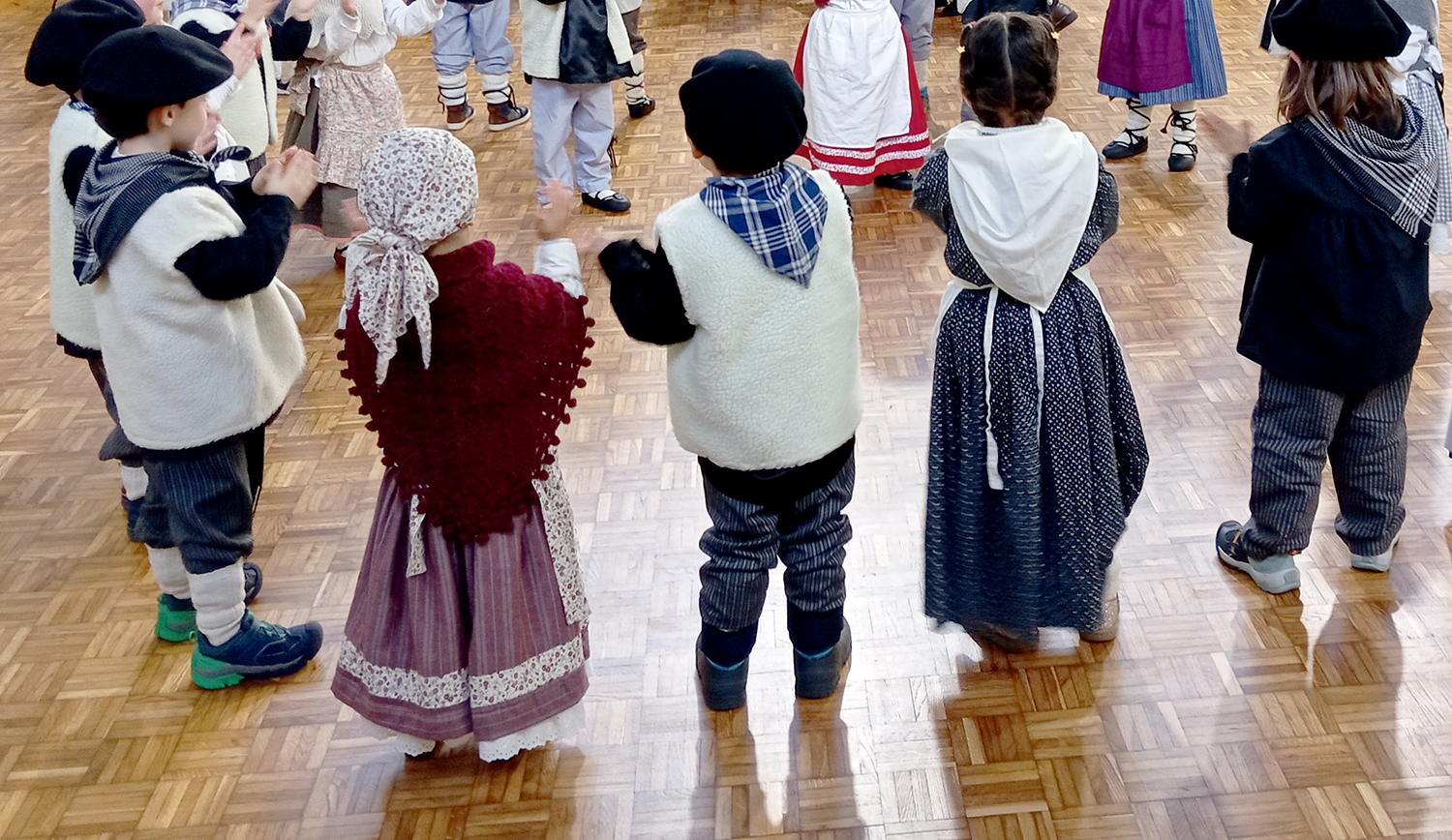
- Knowing that the root of Christmas is Christian, more and more schools decide to sing songs that have no Catholic references, based on secularism as one of the principles of the school.

Yes, Christmas is the result of Christian culture, and when this debate takes place, the position of some is firm: Not celebrating Christmas is the way to turn your back on religion; Christmas celebrates the birth of Jesus and suppressing Jesus from the songs is not understandable. The secular alternative is not to celebrate Christmas.
On the contrary, while the culture peppered by religion continues to live with an increasingly secular society, many centers have seen that it is a yoke to celebrate the arrival of Olentzero and Mari Domingi without highlighting the Catholic symbolism. After all, this is also the case in many houses.
There are those who shape the songs, such as the episode “That Jesus Was Born in Duania”, represented by the phrase “That Winter Comes in Duania”, but the Christmas songs that do not speak of Jesus, Mary, Joseph, angels or God are not few, so it is easy to give way to the educational communities they choose. For example, music professor Mitxel Elorza hung on the net the list of “Gabon kanta laikoak”.
Some schools, more than Olentzero and Mari Domingi, emphasize the celebration of the winter solstice or the Feast of Santomas
Debate and opportunities
Fruit of the reflections of the professionals of the center, or of the demands of the parents, year after year it is proposed to wager on songs without religious symbols in each of the educational communities. The Federation of Associations of Fathers and Mothers EHIGE claimed so a few years ago, stating that “Christmas in the classroom should be addressed without working the religious perspective.”
Some schools, more than Olentzero and Mari Domingi, emphasize the celebration of the winter solstice, or the Feast of Santomas, and prefer the songs of this round. There are also centers that maintain religious references in songs but leave their participation free, and the professor and student who does not want does not have to sing. There are also schools that take advantage to talk about the festivities that take place in other cultures and religions on the occasion of Christmas.
Despite the accounts, both public and concerted, the Education Act, in theory, obliges everyone to respect the principle of secularism in the CAPV – let us also think of the Christian Schools – to be financed with public money.